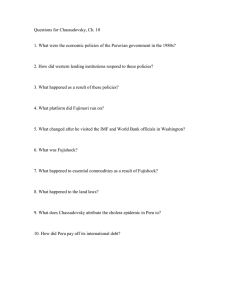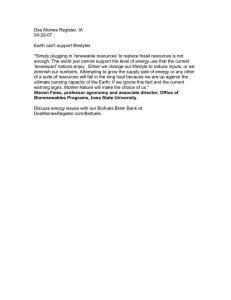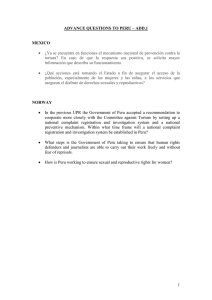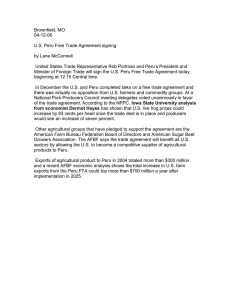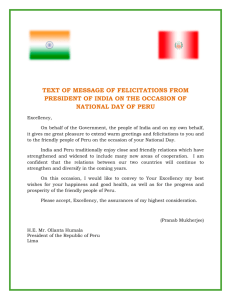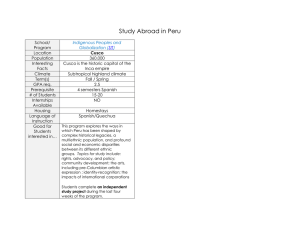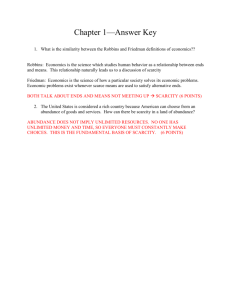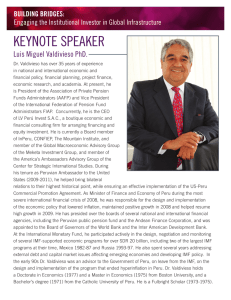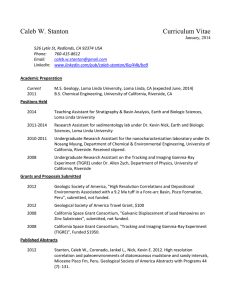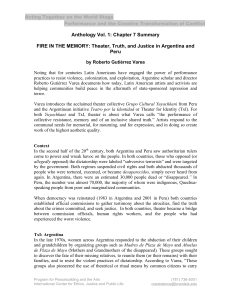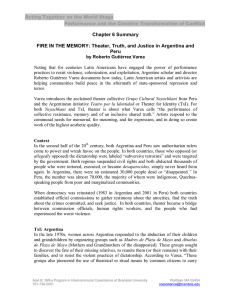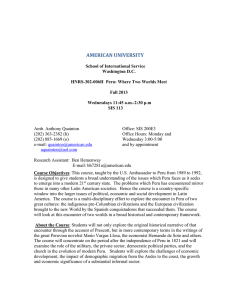Workshop on International Law, Natural Resources and Sustainable Development
advertisement
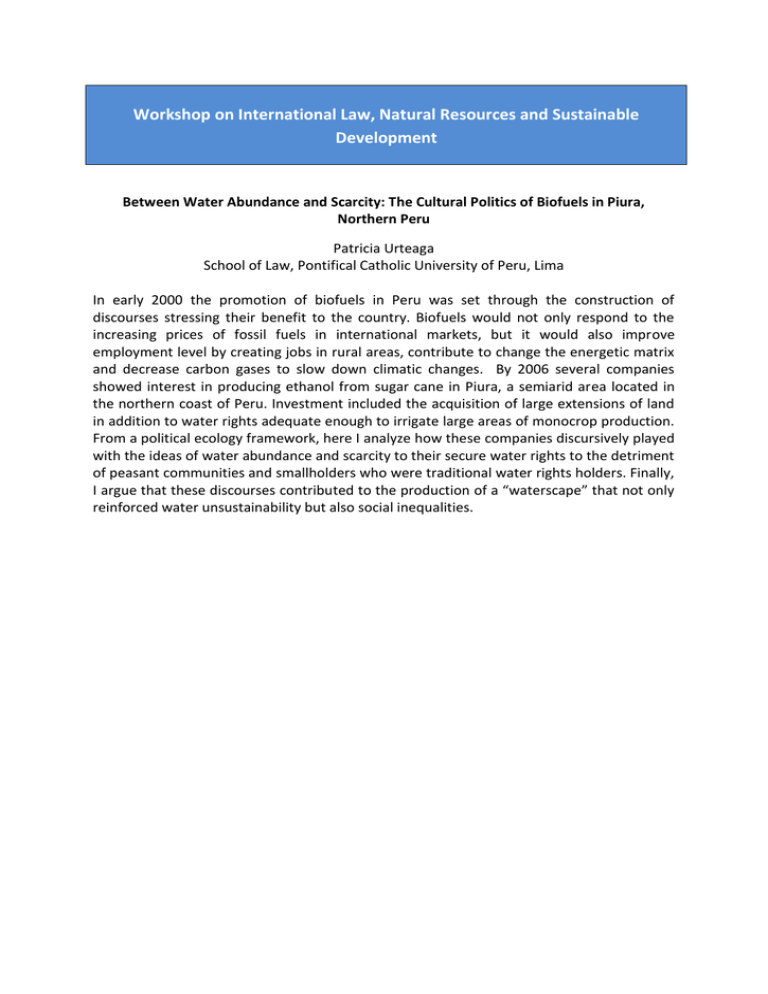
Workshop on International Law, Natural Resources and Sustainable Development Between Water Abundance and Scarcity: The Cultural Politics of Biofuels in Piura, Northern Peru Patricia Urteaga School of Law, Pontifical Catholic University of Peru, Lima In early 2000 the promotion of biofuels in Peru was set through the construction of discourses stressing their benefit to the country. Biofuels would not only respond to the increasing prices of fossil fuels in international markets, but it would also improve employment level by creating jobs in rural areas, contribute to change the energetic matrix and decrease carbon gases to slow down climatic changes. By 2006 several companies showed interest in producing ethanol from sugar cane in Piura, a semiarid area located in the northern coast of Peru. Investment included the acquisition of large extensions of land in addition to water rights adequate enough to irrigate large areas of monocrop production. From a political ecology framework, here I analyze how these companies discursively played with the ideas of water abundance and scarcity to their secure water rights to the detriment of peasant communities and smallholders who were traditional water rights holders. Finally, I argue that these discourses contributed to the production of a “waterscape” that not only reinforced water unsustainability but also social inequalities.
